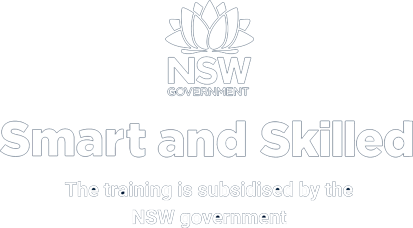Meeting the licensing requirements to become a builder involves careful evaluation of your educational background and qualifications, as well as gaining practical experience and fulfilling supervisory prerequisites.
Provide comprehensive documentation of your academic history, including specialised training, and actively seek opportunities to work in the construction industry to build hands-on experience. Demonstrate your leadership abilities by taking on supervisory roles and continuously invest in professional development to meet the standards necessary for obtaining a builder’s licence.
Understanding the Role of a Builder in QLD
Significance of Builders in Queensland’s Construction Sector
In the vibrant landscape of Queensland’s construction sector, builders play a pivotal role, in steering the course of projects and shaping the built environment that surrounds us. These skilled professionals are the linchpin of any construction endeavour, orchestrating a symphony of tasks and ensuring the seamless execution of projects from inception to completion. Builders are the architects of our dreams, turning blueprints into reality with their unwavering dedication and expertise.
Builders are entrusted with the responsibility of translating the visions of clients and architects into tangible structures. With their keen understanding of structural integrity, design principles, and local building codes, builders navigate the complexities of construction, bringing together teams of craftsmen, subcontractors, and suppliers. Their acute attention to detail guarantees that every element, from foundation to finishing touches, meets the highest standards of quality and craftsmanship.
Certification and Licensing Criteria
To assume the role of a builder in Queensland, one must meet stringent certification and licensing criteria. The regulatory framework ensures that builders possess the necessary skills, knowledge, and qualifications to undertake construction projects with competence and professionalism.
Aspiring builders undergo comprehensive training through a waterproofing course or other courses. Some of these other courses are building and construction courses, and apprenticeships, honing their expertise in diverse areas such as project management, cost estimation, and building codes.
Obtaining a builders licence in WA or other parts of Australia (CPC40120 Certificate IV in Construction and Building) is a significant milestone in this journey. The process involves meeting specific educational and experience requirements and demonstrating an in-depth understanding of construction principles, safety protocols, and legal obligations.
Essential Abilities and Characteristics for Successful Builders
Successful builders possess a unique blend of abilities and characteristics that set them apart in the construction industry. Beyond technical expertise, these professionals exhibit exceptional leadership, communication, and problem-solving skills. Builders must be adept at coordinating diverse teams, effectively conveying project objectives, and resolving conflicts to maintain smooth operations on-site.
Adaptability and flexibility are also crucial attributes for builders, as construction projects are dynamic endeavours with ever-changing circumstances. Builders must be prepared to adjust plans, make informed decisions, and swiftly address unforeseen challenges to keep projects on track. With their inherent passion for construction, builders embrace innovation and continuously seek opportunities for improvement, ensuring they stay at the forefront of industry trends and techniques.
💡KEY TAKEAWAY: Builders in Queensland’s construction sector play a pivotal role in bringing dreams to life, combining technical expertise with unwavering dedication. By meeting certification and licensing criteria, builders gain the necessary qualifications and recognition to undertake projects with competence and professionalism. Essential abilities and characteristics, including leadership, adaptability, and a passion for continuous improvement, contribute to the success of builders in this dynamic industry.
Planning Your Path to Becoming a Builder
Exploring and Choosing the Right Career Route
Embarking on a journey to become a builder is an exciting endeavour, filled with endless possibilities and opportunities for growth. As you set foot on this path, take the time to explore and choose the right career route that aligns with your aspirations and passions.
The construction industry is vast and multifaceted, offering a wide range of specialisations, from residential construction to commercial projects and everything in between. Consider your personal interests and strengths as you navigate through the myriad of options.
Are you drawn to the artistry of residential architecture or the complexity of large-scale infrastructure projects? Do you thrive in a collaborative team environment or prefer the autonomy of working independently? Reflect on these questions to gain clarity on the direction you want to pursue. Remember, choosing the right career route sets the foundation for a fulfilling and rewarding journey ahead.
Acquiring Hands-on Practical Expertise
In the construction industry, theoretical knowledge alone will only take you so far. To truly excel as a builder, acquiring hands-on practical expertise is crucial. While classroom education provides a solid foundation, nothing can substitute the value of real-world experience. Seek out opportunities to engage in apprenticeships, internships, or entry-level positions that allow you to immerse yourself in the practical aspects of construction.
Through these experiences, you will develop a deep understanding of the tools, techniques, and materials used in the industry. Embrace each task with enthusiasm and meticulousness, for it is through practice that craftsmanship is honed. Take the time to observe seasoned professionals, learning from their expertise and absorbing their invaluable insights. Embrace challenges as opportunities for growth, never shying away from getting your hands dirty and putting your knowledge into action.
Seeking Guidance and Networking Opportunities
Navigating the construction industry can be daunting, but you need not embark on this journey alone. Seek guidance and mentorship from experienced professionals who have walked the path before you. Engage in networking opportunities such as industry events, conferences, and trade shows to connect with like-minded individuals who share your passion for construction. Build relationships, exchange knowledge, and immerse yourself in a community that will support your growth.
Remember that success in the construction industry is not solely determined by individual effort but by the strength of your network. Fostering relationships with professionals across various disciplines, as collaboration and interdisciplinary knowledge, are key drivers of innovation in the field. Embrace the guidance and mentorship provided by seasoned builders, for their wisdom and insights are invaluable resources that will propel you forward on your path to becoming a builder.
💡KEY TAKEAWAY: Embarking on a path to becoming a builder requires careful planning and deliberate action. Choose the right career route that aligns with your passions and strengths, acquire hands-on practical expertise to complement theoretical knowledge, and seek guidance and networking opportunities to build a supportive community. With determination and an insatiable thirst for knowledge, you will navigate the construction industry with confidence and embrace the fulfilling journey that awaits you.
Meeting the Licensing Requirements
Educational Background and Qualification Evaluation
When it comes to meeting the licensing requirements in the construction industry, your educational background and qualifications play a crucial role. Aspiring professionals like yourself must undergo a thorough evaluation of their educational credentials to ensure they meet the necessary standards. This evaluation aims to determine whether your qualifications align with the industry’s benchmarks and if you possess the essential knowledge and skills to excel in your chosen field.
During this process, your educational background will be closely examined, taking into account the courses you’ve completed, the institutions you’ve attended, and the certifications you’ve obtained. It’s important to present a comprehensive and accurate record of your educational achievements, including any specialised training or relevant workshops you’ve participated in. This information will enable evaluators to assess your level of expertise and gauge your suitability for a builder’s licence.
To successfully navigate the educational background and qualification evaluation, it’s essential to provide clear and concise documentation of your academic history. Make sure to include official transcripts, certificates, and any other relevant supporting materials. Pay meticulous attention to detail, ensuring that all information is accurate and up to date.
Experience and Supervisory Prerequisites
Alongside your educational background and qualifications, experience and supervisory prerequisites are vital aspects of meeting the licensing requirements in the construction field. Building a solid foundation of practical experience is crucial for honing your skills, developing a deep understanding of construction processes, and demonstrating your ability to oversee and manage projects effectively.
To meet the experience prerequisites, it’s important to actively seek out opportunities to work in the construction industry. Whether it’s through internships, apprenticeships, or entry-level positions, gaining hands-on experience allows you to apply your theoretical knowledge to real-world scenarios. Take advantage of every chance to work under the guidance of experienced professionals who can provide mentorship and impart valuable insights.
Supervisory prerequisites are equally important, as they demonstrate your capacity to lead and oversee construction projects. This entails taking on roles that involve managing teams, coordinating tasks, and ensuring compliance with safety regulations. By assuming supervisory responsibilities, you showcase your ability to handle the complexities and challenges inherent in construction projects.
To meet these prerequisites, actively seek out opportunities for growth and advancement within your current role or through additional training programs. Continually strive to expand your skill set and enhance your leadership abilities, demonstrating your dedication to professional development and your commitment to meeting the licensing requirements.
Applying for a Builder’s licence
Once you have met the educational background and qualification evaluation, as well as the experience and supervisory prerequisites, the next step is to apply for a builder’s licence. This is a significant milestone that grants you official recognition as a qualified professional in the construction industry and allows you to undertake a wide range of construction projects independently.
When applying for a builder’s licence, it’s essential to carefully follow the specific requirements and procedures outlined by the licensing authority in your jurisdiction. This typically involves submitting an application form, along with supporting documents that validate your educational background, qualifications, and experience. Take care to complete the application accurately, providing all requested information and ensuring that all documentation is up to date and relevant.
Additionally, be prepared for any additional steps in the application process, such as interviews or examinations that assess your knowledge and skills. These additional measures are designed to ensure that you possess the necessary competencies to operate as a licenced builder and uphold the industry’s standards of professionalism and quality.
💡KEY TAKEAWAY: Meeting the licensing requirements in the construction industry is a multifaceted process that involves evaluating your educational background and qualifications, meeting experience and supervisory prerequisites, and successfully applying for a builder’s licence.
By presenting a strong educational foundation, gaining practical experience, and showcasing your ability to oversee and manage construction projects, you enhance your chances of meeting the requirements and gaining recognition as a qualified professional in the field.
Building Your Career as a Builder
Establishing Your Own Construction Enterprise
Embarking on the path of establishing your own construction enterprise is a bold and rewarding endeavour. As a builder with a keen eye for detail and a passion for creating structures that stand the test of time, venturing into entrepreneurship allows you to unleash your creativity and drive. By establishing your own construction enterprise, you have the opportunity to shape your destiny, create a legacy, and leave your mark on the industry.
When establishing your construction enterprise, meticulous planning and strategic thinking are paramount. Begin by conducting a comprehensive market analysis to identify your niche and target audience. Understanding the needs and preferences of your prospective clients will enable you to tailor your services and differentiate yourself from competitors. Develop a solid business plan that outlines your goals, financial projections, and marketing strategies.
Equally important is building a reliable network of suppliers, subcontractors, and industry professionals. Nurture these relationships, as they will be instrumental in providing the resources and support necessary for your enterprise’s growth and success. Moreover, prioritise ongoing professional development to enhance your entrepreneurial skills and stay updated on the latest industry trends.
Employment Opportunities with Reputable Building Firms
For those who prefer the stability and guidance of established organisations, pursuing employment opportunities with reputable building firms can be an excellent choice. These firms often boast a wealth of experience, a robust network, and a diverse portfolio of projects, providing an invaluable platform for professional growth.
When seeking employment with reputable building firms, highlight your expertise, attention to detail, and passion for construction. Tailor your resume and cover letter to showcase your unique skills and experiences that align with the firm’s values and projects. Prepare for interviews by researching the firm’s recent undertakings and demonstrating your understanding of their work.
Once you secure a position, embrace the opportunity to learn from seasoned professionals within the organisation. Absorb their knowledge, observe their methodologies, and seek guidance whenever possible. By actively engaging in projects and taking ownership of your work, you will earn the respect and trust of your colleagues, positioning yourself for growth within the firm.
Continuous Professional Advancement
In the ever-evolving construction industry, continuous professional advancement is crucial to staying relevant and thriving in your career as a builder. Embrace a growth mindset and be proactive in seeking opportunities for learning and development.
Consider pursuing certifications and specialised training programs that enhance your skills and expand your knowledge base. These credentials not only demonstrate your commitment to excellence but also provide a competitive edge in a crowded job market. Stay updated on industry standards, regulations, and technological advancements to remain at the forefront of the field.
Networking is another essential aspect of continuous professional advancement. Attend industry conferences, seminars, and trade shows to connect with like-minded professionals, exchange ideas, and stay abreast of the latest industry trends. Engage in online communities and forums, where you can collaborate, seek advice, and contribute your insights to the broader construction community.
💡KEY TAKEAWAY: In your journey as a builder, establishing your own construction enterprise offers the freedom to create your vision and leave a lasting impact. Alternatively, employment opportunities with reputable building firms provide a platform for growth and learning from experienced professionals. Regardless of your chosen path, continuous professional advancement through certifications, networking, and embracing challenging projects is key to thriving in the dynamic construction industry.
Resources and Support for Builders in QLD
Queensland Building and Construction Commission (QBCC)
When it comes to resources and support for builders in Queensland, the Queensland Building and Construction Commission (QBCC) stands as a reliable ally. Established with the purpose of regulating the building industry and ensuring high standards, the QBCC offers an array of services to assist builders in their professional endeavours.
From licensing and compliance to dispute resolution and financial protection, the QBCC is a comprehensive resource that every builder should be familiar with.
Under the QBCC’s umbrella, builders gain access to a wealth of information and guidance. Their website serves as a treasure trove of resources, featuring detailed guidelines, codes of practice, and frequently asked questions. Whether you’re seeking information on licensing requirements or looking to understand your obligations as a builder, QBCC’s online platform has you covered.
Professional Associations and Industry Networks
To truly thrive in the building and construction industry, connecting with like-minded professionals is essential. Professional associations and industry networks provide a platform for builders to engage with peers, share knowledge, and stay updated on industry trends. These networks foster a sense of community and collaboration, serving as a valuable source of support and mentorship.
In Queensland, organisations like Master Builders Queensland and the Housing Industry Association (HIA) offer membership opportunities for builders. These associations provide a range of benefits, including access to training programs, industry events, and networking opportunities. By becoming a member, you’ll join a community of builders who share your passion and drive for excellence, amplifying your professional growth and expanding your network.
Online Tools and Information Sources
In the digital age, online tools and information sources have become indispensable for builders seeking to enhance their skills and knowledge. Platforms like the Building and Construction Training Foundation (BCTF) and the Construction Skills Queensland (CSQ) website offer a plethora of training resources, courses, and workshops to help builders upskill and broaden their expertise.
Additionally, websites such as the Building Code Australia (BCA) and the Queensland Government’s official website provide comprehensive information on building regulations, codes, and standards. These online sources serve as valuable references for builders, ensuring compliance with legal requirements and fostering a commitment to quality workmanship.
💡KEY TAKEAWAY: Builders in Queensland have access to a range of resources and support systems that can propel their professional journey to new heights. From the QBCC’s comprehensive services and online resources to professional associations and industry networks, the opportunities for growth and development are abundant.
Unlock your construction potential with Everthought as a leading provider of cutting-edge programs, we offer industry-relevant skills and a supportive learning environment, serving as your catalyst for personal and professional growth in the dynamic world of construction.





